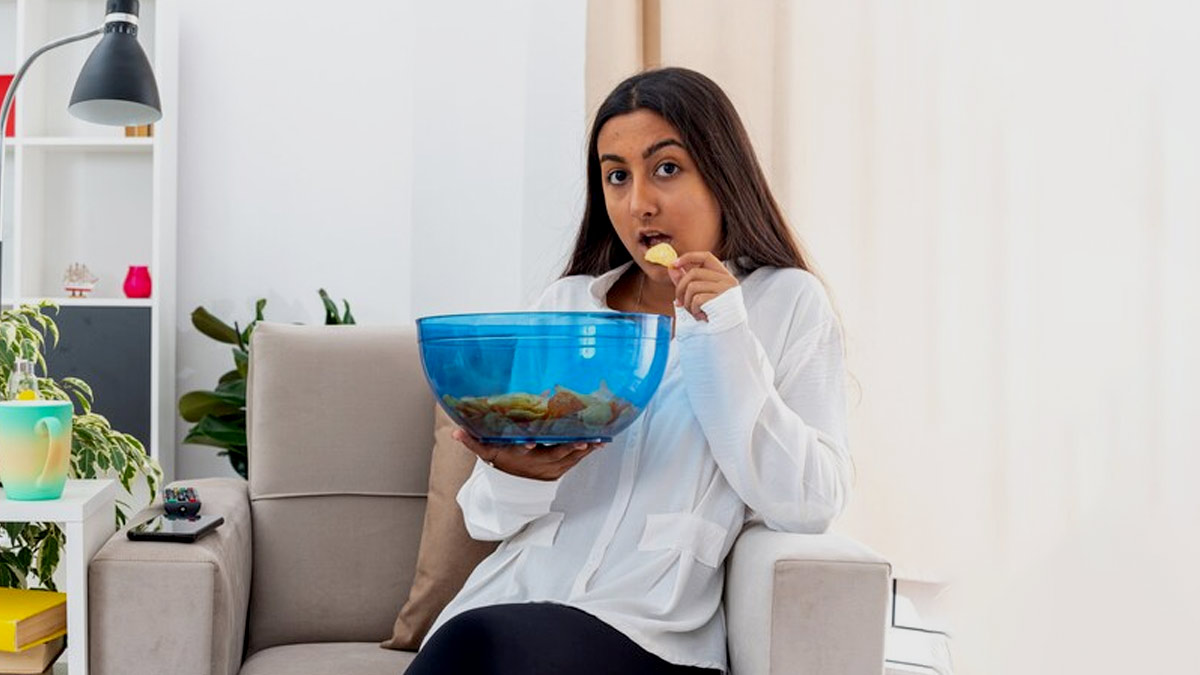
In a world full of fad diets, calorie counting, and clean eating trends, intuitive eating is a refreshing, evidence-based approach that’s been gaining attention for its holistic and sustainable philosophy. But what exactly is intuitive eating, and can it improve your health? The editorial team of Onlymyhealth exclusively spoke with expert Pooja Singh, a Dietitianat ShardaCare,Health City - Noida, who explained everything. Here is what she shared with us.
Table of Content:-
What Is Intuitive Eating?
Intuitive eating is a non-diet approach to health that encourages you to listen to your body’s natural hunger and fullness cues instead of following restrictive food rules. Originally developed in 1995 by dietitians Evelyn Tribole and Elyse Resch, intuitive eating is grounded in 10 core principles designed to help people build a healthier relationship with food, mind, and body.
In short, intuitive eating promotes eating when you’re hungry, stopping when you’re full, and rejecting the idea that certain foods are good or bad. Additionally, expert elucidates that, unlike traditional diets, intuitive eating is not about weight loss; it’s about body awareness, self-compassion, and emotional balance around food.
Also Read: What Is Leptin And Why It May be A Potential Alternative To Insulin?

What Are The 10 Principles Of Intuitive Eating?
- Reject the Diet Mentality: Let go of the idea that you need to follow a diet to be healthy or worthy.
- Honour Your Hunger: Eat when your body signals hunger to avoid overeating later.
- Make Peace with Food: Give yourself unconditional permission to eat all foods without guilt.
- Challenge the Food Police: Silence the inner voice that labels you as good or bad based on what you eat.
- Respect Your Fullness: Learn to recognise when you’re comfortably full and stop eating then.
- Discover the Satisfaction Factor: Choose foods that are both nourishing and enjoyable.
- Honour Your Feelings Without Using Food: Learn healthier ways to cope with emotions like stress, boredom, or sadness.
- Respect Your Body: Accept your genetic blueprint and treat your body with dignity and care.
- Exercise: Shift the focus from calorie burning to how movement makes you feel.
- Honour Your Health: Make food choices that honour your health and taste preferences, without guilt.
Can Intuitive Eating Help Your Health?
While intuitive eating isn’t a quick fix, research suggests it offers real, lasting health benefits.
1. Improved Mental Health
Studies have shown that intuitive eating is linked to:
- Lower levels of depression, anxiety, and disordered eating behaviours
- Higher self-esteem and body image satisfaction
- Decreased stress around food
2. Physical Health Benefits
Though it doesn’t focus on weight loss, intuitive eating has been associated with:
- Improved blood pressure and cholesterol levels
- More consistent eating patterns
- Reduced binge eating and emotional eating
3. Sustainable Lifestyle
Because intuitive eating isn’t restrictive, it’s more sustainable in the long run compared to dieting. People are more likely to maintain healthy habits when they’re based on internal cues and self-trust rather than willpower and external rules.
Also Read: Health Alert: West Nile Virus Sparks Alarm Across Europe, Here’s What You Should Know

Is Intuitive Eating Right for You?
According to Singh, if you're tired of yo-yo dieting, feeling guilty about food, or being at war with your body, intuitive eating might be worth exploring. It’s especially helpful for those looking to:
- Break free from chronic dieting
- Improve their body image
- Eat more mindfully and enjoyably
- Feel more in control around food, without restrictions
That said, learning to eat intuitively takes time, patience, and unlearning a lot of societal messages about food and body image. Working with a registered dietitian or therapist trained in intuitive eating can be a helpful step.
Bottomline
Intuitive eating is not a trend; it’s a return to trusting your body. Instead of chasing the next diet, it invites you to slow down, tune in, and nourish yourself with compassion and care. And in doing so, it can support both your mental and physical health for the long haul. Because ultimately, health isn’t just about what you eat, it’s about how you feel, think, and live.
Also watch this video
How we keep this article up to date:
We work with experts and keep a close eye on the latest in health and wellness. Whenever there is a new research or helpful information, we update our articles with accurate and useful advice.
Current Version
Aug 05, 2025 12:13 IST
Published By : Tanya Srivastava